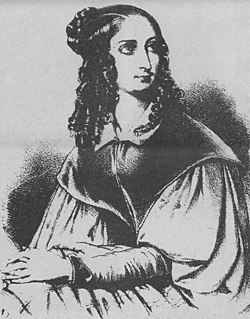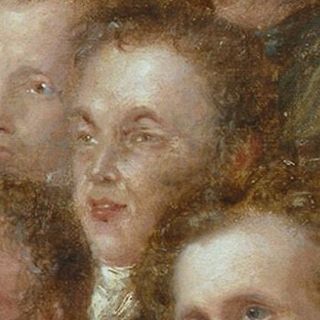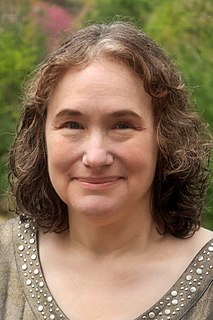A Quote by George William Curtis
Virtue does not truly reward her votary if she leaves him sad and half doubtful whether it would not have been better to serve vice.
Related Quotes
She wondered whether there would ever come an hour in her life when she didn't think of him -- didn't speak to him in her head, didn't relive every moment they'd been together, didn't long for his voice and his hands and his love. She had never dreamed of what it would feel like to love someone so much; of all the things that had astonished her in her adventures, that was what astonished her the most. She thought the tenderness it left in her heart was like a bruise that would never go away, but she would cherish it forever.
Sometimes a woman's love of being loved gets the better of her conscience, and though she is agonized at the thought of treating a man cruelly, she encourages him to love her while she doesn't love him at all. Then, when she sees him suffering, her remorse sets in, and she does what she can to repair the wrong.
Bedding her could be anything from tenderness to riot, but to take her when she was a bit the worse for drink was always a particular delight. Intoxicated, she took less care for him than usual; abandoned and oblivious to all but her own pleasure, she would rake him, bite him - and beg him to serve her so, as well. He loved the feeling of power in it, the tantalizing choice between joining her at once in animal lust, or of holding himself-for a time- in check, so as to drive her at his whim.
Virtue and vice suppose the freedom to choose between good and evil; but what can be the morals of a woman who is not even in possession of herself, who has nothing of her own, and who all her life has been trained to extricate herself from the arbitrary by ruse, from constraint by using her charms?... As long as she is subject to man's yoke or to prejudice, as long as she receives no professional education, as long as she is deprived of her civil rights, there can be no moral law for her!
Every woman whether rich or poor, married or single, has a circle of influence within which, according to her character, she is exerting a certain amount of power for good or harm. Every woman, by her virtue or her vice, by her folly or her wisdom, by her levity or her dignity, is adding something to our national elevation or degradation. A community is not likely to be overthrown where woman fulfills her mission, for by the power of her noble heart over the hearts of others, she will raise that community from its ruins and restore it again to prosperity and joy.
Sometimes she wished for someone she could tell about her problems, just to be able to say, ‘I’m in love with a man and I can’t have him.’ But that would only lead to questions she couldn’t answer, so she kept the secret and the pain inside, hoping someday she would no longer feel as if half of her were missing.
Few countries have produced such arrogance and snobbishness as America. Particularly is this true of the American woman of the middle class. She not only considers herself the equal of man, but his superior, especially in her purity, goodness, and morality. Small wonder that the American suffragist claims for her vote the most miraculous powers. In her exalted conceit she does not see how truly enslaved she is, not so much by man, as by her own silly notions and traditions. Suffrage can not ameliorate that sad fact; it can only accentuate it, as indeed it does.
She had always told herself that she did hti job because she wanted to help others; afterall, hadn't Maurice told her once that the most important question any individual could ask was, "How might I serve?" If her response to that question had been pure, surely she would have coninued with the calling to be a nurse.... But that role hadn't been quite enough for her. She would have missed the excitement, the thrill when she embarked on the work of collecting clues to support a case.
The Woman had once been supreme; in France she still seemed potent, not merely as a sentiment but as a force; why was she unknownin America? for evidently America was ashamed of her, and she was ashamed of herself, otherwise they would not have strewn fig-leaves so profusely all over her. When she was a true force, she was ignorant of fig-leaves, but the monthly-magazine-made American female had not a feature that would have been recognized by Adam. The trait was notorious, and often humorous, but anyone brought up among Puritans knew that sex was sin. In any previous age, sex was strength.
And what does reward virtue? You think the communist commissar rewards virtue? You think a Hitler rewards virtue? You think, excuse me, if you'll pardon me, American presidents reward virtue? Do they choose their appointees on the basis of the virtue of the people appointed or on the basis of their political clout?
Do you know him well?" I ask.I am too curious; I always have been. "Everyone knows Four," she says. "We were initiates together.I was bad at fighting,so he taught me every night after everyone was asleep." She scratches the back of her neck, her expression suddenly serious. "Nice of him." She gets up and stands behind the members sitting in the doorway. In a second, her serious expression is gone,but I still feel rattled by what she said, half confused by the idea of Four being "nice" and half wanting to punch her for no apparent reason.



































